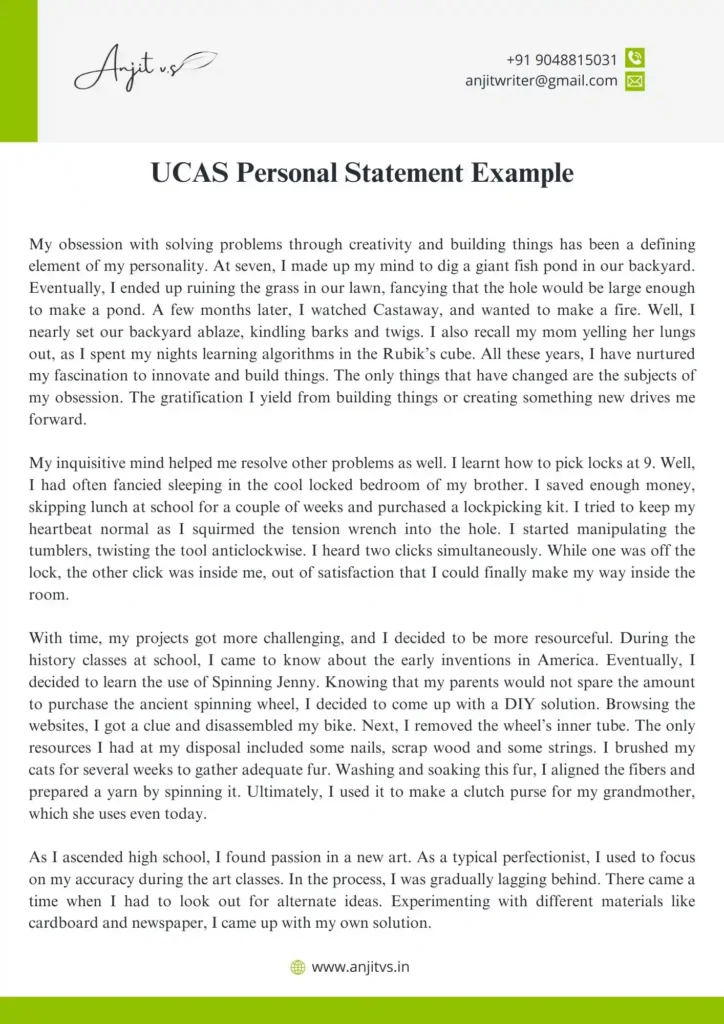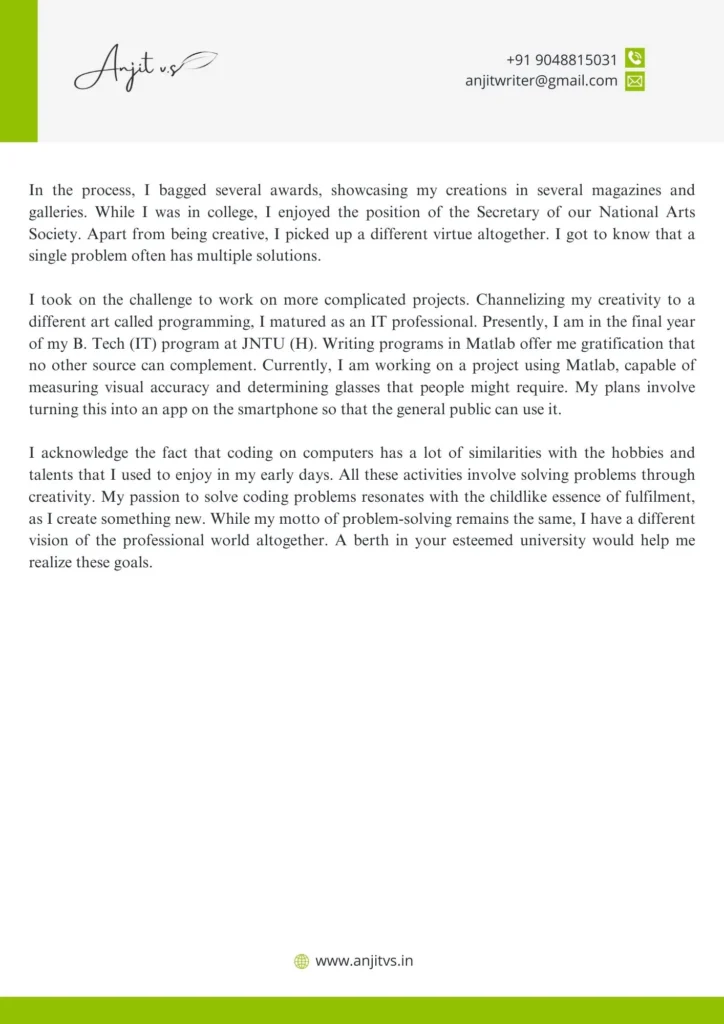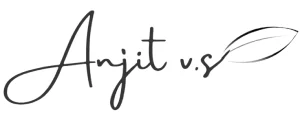Want to study at the best University in the UK? Admission to UK universities is managed through UCAS (University and Colleges Admission Service). If you meet the eligibility for admission, the next thing to do is write a UCAS personal statement. Don’t worry if you don’t know what it is and how to write it.
We have designed this blog as a comprehensive resource for each and everything you need to know about university personal statement. This includes:
- UCAS personal statement guide
- University personal statement examples
- UCAS personal statement structure
What Is a Personal Statement for University?
University personal statement is an essay you are supposed to include in an application for university admission. The essay details the factors that make you eligible for admission as well as your background, motivation and future plans.
What Is The UCAS Personal Statement?
The Universities and Colleges Admissions Service (UCAS) Personal Statement is an essay you submit online to study in colleges and universities in Great Britain. A UCAS Personal Statement helps you stand out from the crowd as it provides the opportunity to list all your achievements and skills and impress the officials.
What Is the Recommended Length for A UCAS Personal Statement for University?
Universities expect a precise and short personal statement from their applicants. It means you shouldn’t write it overly lengthy. The generally accepted word limit is about 500 to 750 words.
Is the UCAS Personal Statement Character Limit 4000 With or Without Space?
4000 characters are the maximum character length for a UCAS personal statement and it must be fitted in 47 lines. This is without spaces.
Few Questions to Ask Yourself as You Begin Writing UCAS Personal Statement
It is important to have pixel clarity about what to write, what not to write and how to present yourself in the personal statement for university application. The following questions would help you with that.
- What motivated you to go for this program?
- What specific aspect of the program excites you?
- How is your academic background related to this program?
- Have you gained any relevant work experience or exposure that would benefit you during the formation of this program?
- Do you have any remarkable life experiences that are worth talking about at this point?
- What are your skills and aptitudes that would help you during this course?
- What are your career aspirations?
How to Write an Amazing UCAS Essay?
To present yourself as a unique and deserving candidate in the application, you must include a compelling personal statement for university in it. This step-by-step guide should help you.
Paragraph 1 – Introduction:
Write a very personal and engaging introduction at the beginning. Remember that it is through your introduction that your readers will understand what will be discussed in the essay and become curious.
Paragraph 2 – Why are you applying:
In this paragraph, list out the reasons for you to apply for this particular UG or PG program. Elaborate on how your interest in the subject was conceived and how, over the years, you cherished it.
Paragraph 3 – How are your experiences and formation related:
In this paragraph, talk about the relevance of your previous academic formations and professional experiences to the new program you are choosing. If there is a course change, explain that as well.
Paragraph 4 – What makes you interested in this program:
This is your chance to show how much you know about the program, its scope and how much you have become convinced of both. Also, in this paragraph, write about your reasons for choosing this particular institute and country.
Paragraph 5 – Why you deserve admission:
In this paragraph, talk about your unique strengths, both as a brilliant student and a good human being, to deserve admission. Talk about all achievements you have had in the past and say how they will help you during your studies.
Paragraph 6 – Future plans:
In this paragraph, you will discuss your career aspirations. You will try to establish your immediate plans after the completion of the course formation as well as long-term plans.
Paragraph 7 – Conclusion:
Towards the end of your personal statement, write a conclusion that reiterates all your points. Also, express your gratitude to the reader for reviewing your write-up and hope that you will be considered for admission.
Refer to Some of Our Personal Statement for UCAS Application Examples


My obsession with solving problems through creativity and building things has been a defining element of my personality. At seven, I made up my mind to dig a giant fish pond in our backyard. Eventually, I ended up ruining the grass in our lawn, fancying that the hole would be large enough to make a pond. A few months later, I watched Castaway, and wanted to make a fire. Well, I nearly set our backyard ablaze, kindling barks and twigs. I also recall my mom yelling her lungs out, as I spent my nights learning algorithms in the Rubik’s cube. All these years, I have nurtured my fascination to innovate and build things. The only things that have changed are the subjects of my obsession. The gratification I yield from building things or creating something new drives me forward.
My inquisitive mind helped me resolve other problems as well. I learnt how to pick locks at 9. Well, I had often fancied sleeping in the cool locked bedroom of my brother. I saved enough money, skipping lunch at school for a couple of weeks and purchased a lockpicking kit. I tried to keep my heartbeat normal as I squirmed the tension wrench into the hole. I started manipulating the tumblers, twisting the tool anticlockwise. I heard two clicks simultaneously. While one was off the lock, the other click was inside me, out of satisfaction that I could finally make my way inside the room.
With time, my projects got more challenging, and I decided to be more resourceful. During the history classes at school, I came to know about the early inventions in America. Eventually, I decided to learn the use of Spinning Jenny. Knowing that my parents would not spare the amount to purchase the ancient spinning wheel, I decided to come up with a DIY solution. Browsing the websites, I got a clue and disassembled my bike. Next, I removed the wheel’s inner tube. The only resources I had at my disposal included some nails, scrap wood and some strings. I brushed my cats for several weeks to gather adequate fur. Washing and soaking this fur, I aligned the fibers and prepared a yarn by spinning it. Ultimately, I used it to make a clutch purse for my grandmother, which she uses even today.
As I ascended high school, I found passion in a new art. As a typical perfectionist, I used to focus on my accuracy during the art classes. In the process, I was gradually lagging behind. There came a time when I had to look out for alternate ideas. Experimenting with different materials like cardboard and newspaper, I came up with my own solution. In the process, I bagged several awards, showcasing my creations in several magazines and galleries. While I was in college, I enjoyed the position of the Secretary of our National Arts Society. Apart from being creative, I picked up a different virtue altogether. I got to know that a single problem often has multiple solutions.
I took on the challenge to work on more complicated projects. Channelizing my creativity to a different art called programming, I matured as an IT professional. Presently, I am in the final year of my B. Tech (IT) program at JNTU (H). Writing programs in Matlab offer me gratification that no other source can complement. Currently, I am working on a project using Matlab, capable of measuring visual accuracy and determining glasses that people might require. My plans involve turning this into an app on the smartphone so that the general public can use it.
I acknowledge the fact that coding on computers has a lot of similarities with the hobbies and talents that I used to enjoy in my early days. All these activities involve solving problems through creativity. My passion to solve coding problems resonates with the childlike essence of fulfilment, as I create something new. While my motto of problem-solving remains the same, I have a different vision of the professional world altogether. A berth in your esteemed university would help me realize these goals.
Read UCAS Personal Statement Examples
Looking at the animals in the wild happens to be a gratifying experience for me. There’s nothing more fascinating to watch them thrive in their natural habitat. It gives me immense pleasure to examine their behaviour when they are in their natural habitats. Well, I got the first-hand opportunity to spend quality time observing the wilderness when I was in Tanzania. It was a memorable experience for me, watching them hunt in the wild. These happenings in my life went a long way to craft my career. I decided to pursue the profession of a veterinarian so that I would have more such facilities to mingle with animals in the wild.
It has been more than ten years that I own horses, and ride them regularly. This has bestowed me with the opportunity to master the art of caring for animals. Grooming and exercising the horses, I take care while bringing them to the field and back, besides mucking out and putting on the rags. For the last three years, I have also been working at a local vet clinic. Every Sunday, I deliver my services here and find great pleasure in easing up the lives of animals. Apart from watching different procedures, I take great pleasure in helping with various consultations and restocking equipment. Even on Saturdays, I get a call sometimes from the clinic, when the regular staff is absent. I am habituated to handling the anaesthesia, besides reviving the puppies. Apart from this, I am well-versed in recording the capillary refill time, respiration and heart rates of the animals. It was during the summer courses at the vet school that I learned to take care of farm animals, including sheep, cows, pigs, and chickens.
During my IB Diploma, I largely focused on my HL Chemistry and HL Biology. What intrigued me about body systems and cell biology is the fact that these disciplines enable me to understand the functional aspects of the body. These are also applicable to the functions of an animal body. Particularly, I was interested in DNA replication and transcription of cells. This way, I got a comprehensive understanding of protein synthesis and genetics. When I examined the modules on animal hereditary diseases, these turned out to be the most vital ones. I also learnt a lot about chemical reactors, which helped me realize the necessity of veterinary medicine from the pharmaceutical angle. Presently, it is crucial to produce effective medicines. Regardless of the demography, vaccination is crucial. This makes it necessary to have comprehensive knowledge of chemical reactions. Through my past courses, I got a decent understanding of how these aspects work.
In my research paper, I have demonstrated my views on the impact of breeding laws in South Australia and the UK. This was in connection with the genetic abnormality development in German shepherds and pugs. Especially, in pugs, the increasing brachycephalic aesthetic was leading to a lot of suffering throughout their life. In German shepherds and other pedigree dogs, the gene pool is limited. After all, the discussion would lead to a matter of ethics, as the dogs of this particular breed suffer at the end of the day. However, they do serve society and the police.
I look forward to imbibing professional knowledge and establishing my competence in the area of my interest. It would be a privilege for me to study at your revered university and research various aspects of veterinary medicine and diseases. Being a vet, I would love to channel my efforts to ensure the better health of animals. It has been a passion for me to work with these creatures. Merging my passion and professional goals, I look forward to crafting a happening career for myself.
Expert Tips for Writing a UCAS Personal Statement
Ever wondered about the line between acceptance and rejection of a personal statement for university? It’s hard to define but these expert tips should help you write a statement that gives it 99.9% acceptance chances.
Tip 1 – Leave your personal touch:
It is important to leave your personal touch on your university personal statement. The admission panel should know how you are different from others by the way you present yourself.Tip 2 – Keep zero tolerance for mistakes:
Mistakes in the personal statement are not tolerated. They are among the top reasons for rejections. Proofread your document multiple times and do away with all kinds of mistakes.Tip 3 – Make it genuine and unique:
Stay away from writing false information as well as copying from other resources such as personal statement for university samples. Both are flagged red.Tip 4 – Make your introduction and conclusion grabbing:
It doesn’t mean you should disregard other parts. While a powerful introduction helps create the first impression, a grabbing conclusion does the final appeal.Tip 5 – Get feedback from others:
Before you submit your personal statement, get it reviewed by at least one person – a friend or an educated family member or a professional. Consider taking their feedback for improving your document.What Should You Avoid in A UCAS Personal Statement?
The personal statement is not a place to write every personal detail about you. There are a few things which you should filter out in the writing. Here are some guidelines.
1. Irrelevant achievements:
As a person, you may have made a lot of achievements. But don’t be tempted to write all of them. Choose the most relevant ones instead.2. Detailed background:
Unlike a statement of purpose, a personal statement for university should focus more on your aptness for the program. You should focus on the ‘why’ aspect and leave out other unnecessary detailing.3. Technical jargon:
Admission officers don’t expect you to show your in-depth knowledge of the subject through the use of complex technical jargon. They are looking for a simple essay that conveys your thoughts clearly.4. About someone else:
A lot of people may have influenced your decision but in your personal statement, you are the central character. So, don’t shed too much light on someone else.5. Trying to get sympathy:
Mention your setbacks but don’t try to create sympathy for you through them by listing them as the reason for your failures. Rather, show how you overcame them.Helpful FAQs To Refer to While Writing a Uni Personal Statement
It is quite natural if you find yourself surrounded by a series of doubts or questions as you begin to write your personal statement. Here are a few such questions and answers to them.
Do university representatives actually read personal statements?
Yes. They do. The personal statement is a crucial document in university applications. The admission panel shortlists candidates based on the information they share through their personal statement.
Should I write my name on my personal statement?
It is not necessary to write your name for the sake of it on your personal statement. However, there is nothing wrong in writing it if you conceive an introduction theme where mentioning your name makes sense.
Do I have to include references in my personal statement for university?
No. You don’t have to include any references. However, when you talk about your strengths or skills or achievements, make sure that they are convincing enough and supported by evidence or proof.
Can I have someone else write my UCAS personal statement?
Yes. It is completely okay to seek the help of someone else to write your personal statement as long as the information you provide in it is true.
What happens if you copy from a personal statement sample?
Copying from someone else’s or sample personal statement is a big no. It will cause your document to be detected for plagiarism and lead to further disciplinary actions from the university admission board.
Does personal statement matter more than grades?
Both are equally important and can be crucial for your selection. A bad personal statement will definitely affect your selection chances. A good one, sometimes, can save you from getting your application rejected even if your grades are average.
How long does it take for one to draft a personal statement?
It depends on how you dedicate yourself to writing it. If you have all the points ready and know the correct format, structure and possess good writing skills, you should be able to write it within a few hours. However, you must proofread it a few times and be ready to modify it if any part of the document seems less impactful. We recommend you start working on your personal statement at least two weeks ahead of the deadline to submit your application.
Do paragraphs matter in a personal statement?
Yes. It is important to divide your personal statement into multiple paragraphs, assigning a specific theme or point to each paragraph. This will make it easier for the readers to locate the specific information they are looking for.
What makes a good UCAS personal statement?
There are multiple factors that contribute towards a good UCAS personal statement.
- Engaging writing tone
- Lack of mistakes
- Focus
- Compliance with UCAS requirements
- Use of correct format and structure
Most Written Personal Statements for University by Courses
Below is the list of the most frequently written personal statements by course.
| Nursing Computer Science Accounting And Finance Criminology Physiotherapy Masters or Postgraduate Mental Health Nursing Civil Engineering | Paramedic Science Law Business Management Electrical Engineering Forensic Science Sports Science Software Engineering Zoology Business Studies |
Universities That Accept UCAS Personal Statement
If you are applying for admission at any of the British universities or colleges via UCAS (University and Colleges Admissions Service), you can use a UCAS personal statement. Here is a list of universities and colleges that come under this.
| University of East London Teesside University University of Oxford University of Manchester University of Hertfordshire University of Cambridge Birmingham City University University of Leeds Coventry University | BPP University University of Greenwich University of Birmingham University of West London Birmingham City University Imperial College London University of Chester University College London London Metropolitan University |
How to Submit Your UCAS application?
- Sign up for your account on the UCAS website
- Complete the registration by filling in the requested details
- Add details of your education and employment
- Choose the higher study program you want to pursue
- Write a bespoke personal statement
- File your application.
Conclusion
Has this blog helped you write a profound and powerful UCAS personal statement?
Applying to UK universities and colleges via UCAS is quite simple and easier. Always make sure that your application is perfect. Obviously, the personal statement for UCAS matters and seeking professional Personal Statement writing services is always great, if you are struggling to write one.
If you have any further questions or doubts in this regard, we are excited to know. Write them in the comments below.


2 Responses
I was looking through some of your content on this internet site and I believe this site is rattling informative! Retain putting up.
I like this weblog very much, Its a rattling nice berth to read and get info . “Reason is not measured by size or height, but by principle.” by Epictetus.